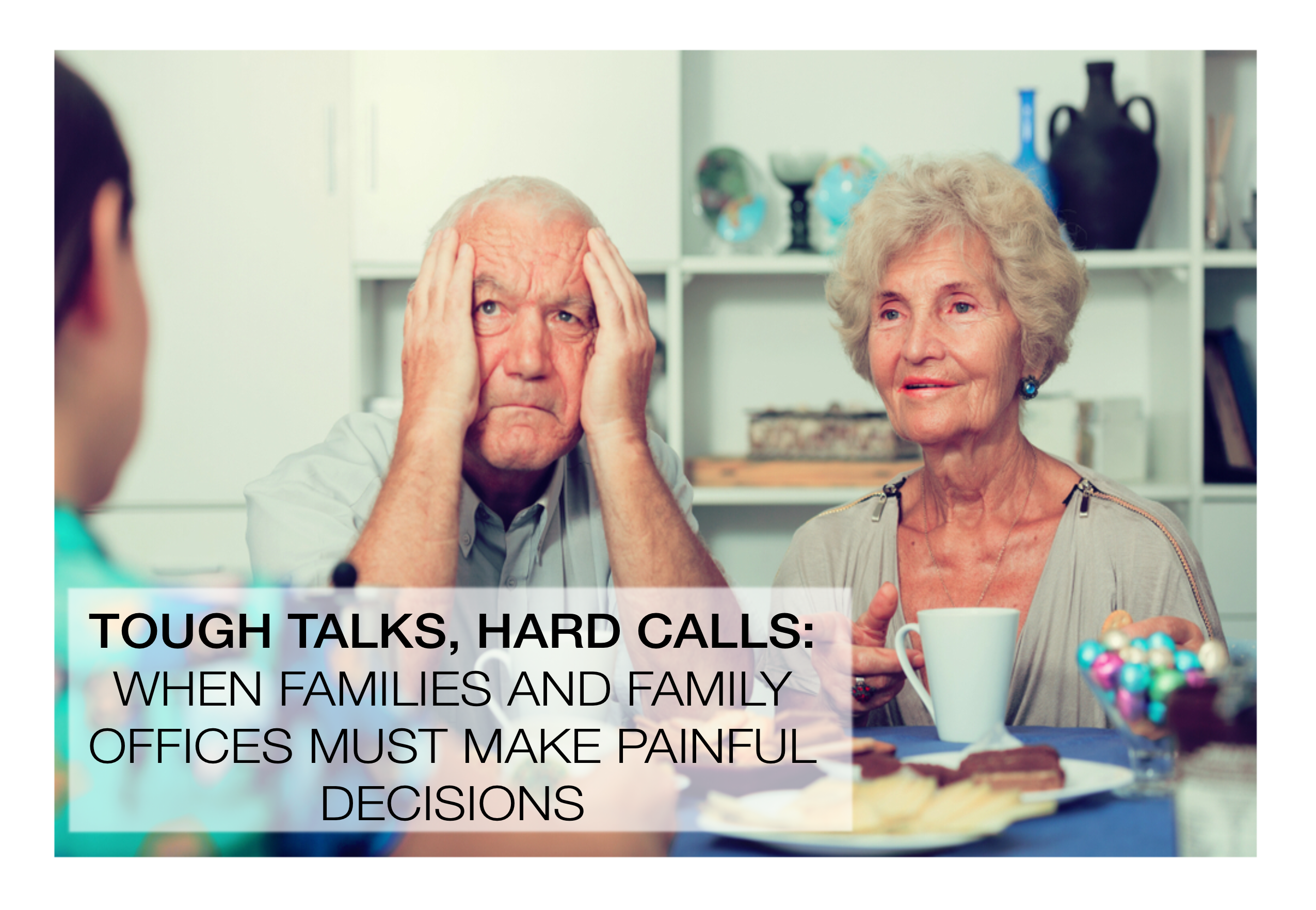High net-worth families, and those with family offices, face unique familial challenges. Families may have one or more members with mental health concerns, substance abuse or addiction to drugs, gambling, wanton frivolous spending, truant children, kids or members absent in life or work, or any level of internal dynamics or trauma that leads to divisive drama. These conflicts often can escalate to engulf the entire family.
The concerns of ultra or high-net-worth families and those of a family office, however, can scale beyond personal health and wellness. They can affect the family’s investment, financial planning, estate and tax planning, and philanthropic investing efforts. These issues can require tough talks and hard calls.
How can families identify the issues and causative factors, then steel themselves to make painful decisions whilst keeping the family’s best interests in mind? In short, how can they have the tough talks and make the hard calls?
I’ve written about these issues in the past, including a blog on family wealth and mental health, how quarrels can quash inheritance plans, even on cutting off difficult heirs. In each of these and other articles, we explore the pressure that family issues place on well-intended patriarchs and matriarchs. The pressure to face the issues and maintain the family balance, while serving the needs of the family, can be immense.
Recognising the problem is a critical first step. Having the fortitude to address it head on can be the hardest call. Sometimes, it helps to have outside guidance, especially when the issues become all-consuming and emotionally draining. This counsellor (not necessarily an attorney, which we’ll discuss below) might be a sounding board, provide guidance, or go so far as to take control and make critical arrangements.
I have worked with a patriarch and family trustee to make a pre-emptive decision to place the scion into in-patient treatment for substance abuse, and with another family to enroll their minor child into therapy. I’ve had private discussions with minor children – with parents’ consent – because my role in the child’s life was that of a non-threatening, trusted elder; a type of mentor role.
I’ve worked with a spouse to address their mate’s wonton spending, and worked with another family to redraft the trust to cut off an adult child who was drawing on their funds to feed their addiction. I counselled a family whose patriarch suffered a brain tumour, which rendered him violent; a senior wife who wouldn’t acknowledge her husband’s onset of dementia; and a family whose child suffered permanent brain damage after being dosed with Rohypnol, the “roofie” date rape drug.
Whatever the crisis, the moment of grief is no time to lay blame. These issues often don’t arise suddenly. They were likely years in the making, but with family involvement, even medical or mental health counsellors engaged to address them.
Whom should you trust? Family likely would lack objectivity because they are emotionally involved. Most private wealth professionals (such as financial advisors, T&E attorneys and CPAs) would prefer not to get involved; the family physician will most likely suggest a mental health professional.
The advisor could be an external counsellor beyond the family. They should hold the role of fiduciary, with the courage of an outsider, but close enough to hear and heed your concerns.
What tools do you have at your disposal? If the problems are anticipated to be long-term or permanent, an existing trust might need to be revised or look at the creation of a special needs trust. If other trusts, gifts or vehicles are in place, were they written to allow a reversal to meet unanticipated needs? Most planning is “cookie cutter,” but as any family’s facing such issues quickly learn, there’s nothing “typical” about these situations.
Most importantly, you must have the fortitude to acknowledge the issue today and plan for tomorrow. That’s where the tough talks and painful decisions come in. These are difficult conversations. Any trusted advisor must be willing to be blunt, knowing that their counsel could get them fired. However, loss of the “client” pales in comparison to the knowledge of having spoken up and making the family aware of the situation they face.

Leave A Comment